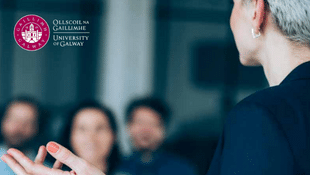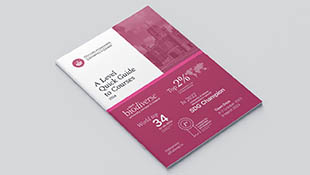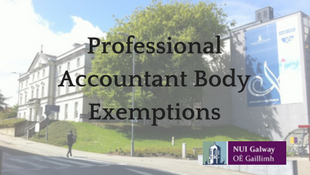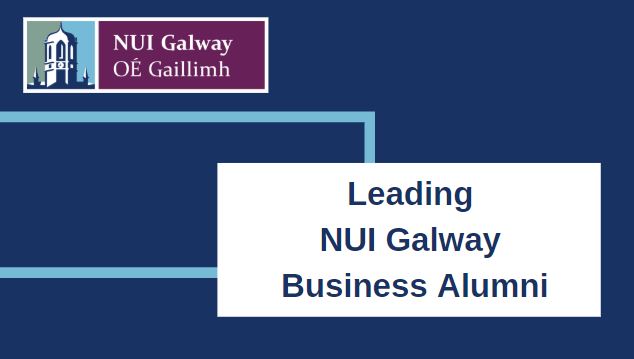-
Courses

Courses
Choosing a course is one of the most important decisions you'll ever make! View our courses and see what our students and lecturers have to say about the courses you are interested in at the links below.
-
University Life

University Life
Each year more than 4,000 choose University of Galway as their University of choice. Find out what life at University of Galway is all about here.
-
About University of Galway

About University of Galway
Since 1845, University of Galway has been sharing the highest quality teaching and research with Ireland and the world. Find out what makes our University so special – from our distinguished history to the latest news and campus developments.
-
Colleges & Schools

Colleges & Schools
University of Galway has earned international recognition as a research-led university with a commitment to top quality teaching across a range of key areas of expertise.
-
Research & Innovation

Research & Innovation
University of Galway’s vibrant research community take on some of the most pressing challenges of our times.
-
Business & Industry

Guiding Breakthrough Research at University of Galway
We explore and facilitate commercial opportunities for the research community at University of Galway, as well as facilitating industry partnership.
-
Alumni & Friends

Alumni & Friends
There are 128,000 University of Galway alumni worldwide. Stay connected to your alumni community! Join our social networks and update your details online.
-
Community Engagement

Community Engagement
At University of Galway, we believe that the best learning takes place when you apply what you learn in a real world context. That's why many of our courses include work placements or community projects.
Economics in Arts
Economics in the BA degree (and other Arts degrees)
The BA is a three year programme. In first year, you choose four subjects, and one of these can be economics. In Second Arts, you continue with two of the subjects taken in first year, and you complete them in third year.
The BA gives you the flexibility to take subjects in first year that are new to you, and also to combine both familiar and new subjects.
Why study economics?
Studying economics gives you:
- An insight into the various economic relationships in the real world around you
- An introduction to the analytical tools you need to help you to explore and understand these relationships
- The opportunity to deepen your understanding of current affairs, the economics of the market place, economic factors influencing politics and how economic issues have influenced the course of history.
What will I be studying?
The study of economics at introductory level comprises two branches. First, microeconomics analyses the behaviours of individual people in markets as workers, consumers/savers and owners of capital. The second branch, macroeconomics, considers the economy at the aggregate level, combining all those individual people and their enterprises. At a national or international level, the state of an economy may be influenced by government policies and we study what impact different policies are likely to have on an economy. These first year courses in both microeconomics and macroeconomics can be taken as a satisfying complement to other degree subjects or as the start of a degree in economics.
In the second and final years of the degree, students delve deeper into these themes and explore other dimensions to economic life. Other upper-level courses range over Irish economic history, environmental economics, money and banking, public sector economics, development economics, and health economics. Throughout a course of study in economics, students encounter the interplay between theory to guide our thinking and the challenges of testing that theory against evidence. An ultimate aim is to use this knowledge to help design economic policy at micro and macro levels.
International options
You may have the option of spending your third year studying abroad, while you return to NUI Galway to complete your degree. This is BA (International) programme, and is open not just to language students, but to all BA students. So for example, you might study economics in your third year in Europe, in an university which teaches through English. (Some universities in Sweden or the Netherlands may be options here, for example.)
Other options for taking economics in Arts degrees
Many degrees in Arts apart from the core BA, require or permit some options in economics, including denominated degrees such as the BA (Public & Social Policy) and the range of BA(Connect) degrees.
Learn more about:
- The BA degree (including the BA International)
- The BA (Public & Social Policy) degree
- The College of Arts, Social Sciences and Celtic Studies for details on the full range of Arts degrees
Downloads
-

Business Postgraduate Programmes 2024 PDF (4.7 MB)
-

Postgraduate Prospectus 2024 PDF (3.3MB)
-
.png)
Business Undergraduate Prospectus 2024 PDF (1.57MB)
-

Undergraduate Prospectus 2024 PDF (14.6MB)
-

A Level Quick Guide 2024 PDF (337 KB)
-

Professional Accounting Body Exemptions PDF (8 KB)
-
Leading Business Alumni Book PDF (1.57)
-

Quick Guide to Courses 2024 PDF (362 KB)
















